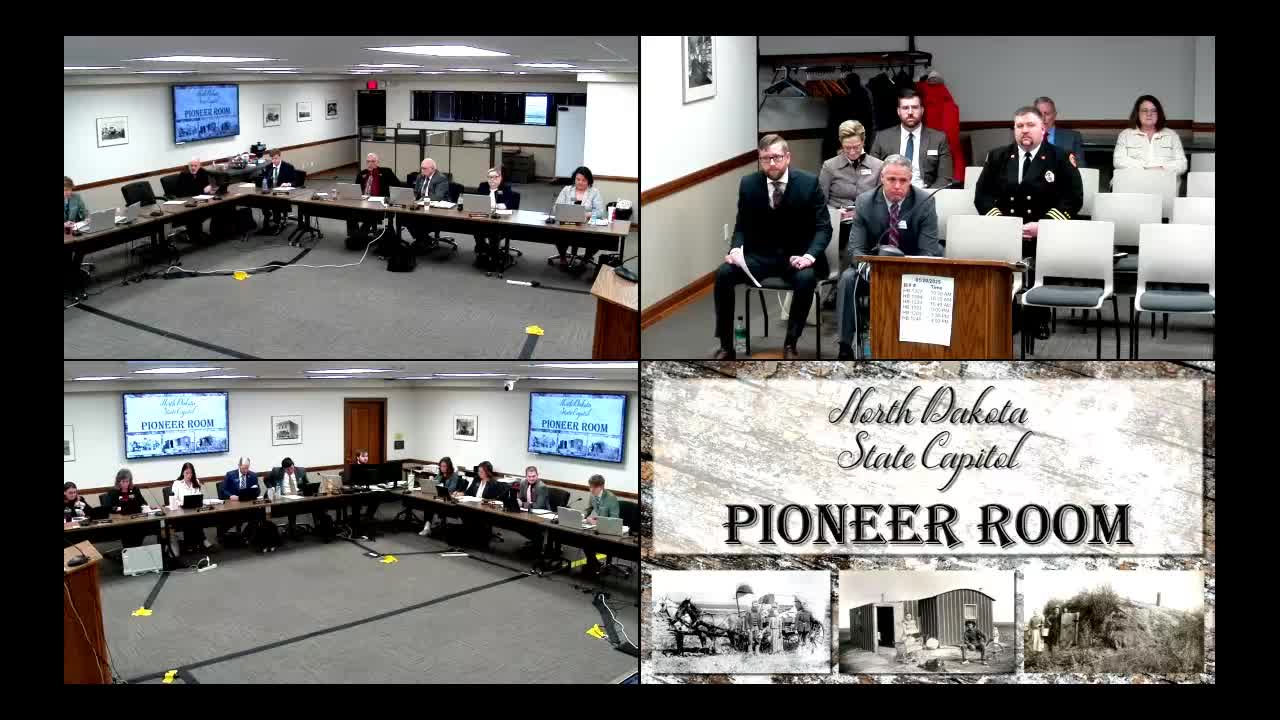Committee hears bill to bar ambulance balance billing, set insurer payments at up to 400% of Medicare
Get AI-powered insights, summaries, and transcripts
Subscribe
Summary
A House Human Services hearing on House Bill 1322 featured supporters saying the measure would protect patients and shore up rural ambulance services, while insurers warned the bill could disrupt provider networks and raise premiums.
The House Human Services Committee opened a hearing on House Bill 1322, a proposal to change how insurers pay ground ambulance providers and to prohibit balance billing of patients.
Proponents said the bill would protect rural ambulance services that are losing money on many calls and prevent patients from receiving surprise bills. "This bill is...another cog in the wheel of trying to shore up our rural EMS, making sure it's viable in the future," said Representative Robin Wise (District 14), who introduced the measure.
The bill would (1) prohibit ambulance providers from collecting amounts from patients beyond applicable copayments, coinsurance and deductibles; (2) require insurers to pay ambulance providers directly in many instances; and (3) set a payment benchmark the bill's proponents described as up to 400% of Medicare for ground ambulance reimbursement.
Adam Parker, testifying for the North Dakota EMS Association, said state-collected data show the cost of delivering ambulance services rose about 66% over six years while reimbursement rose about 11%, leaving local taxpayers to make up the difference. "There are 116 licensed ambulance services," Parker said, and many rural services subsidize operations through property taxes and state grants. He told the committee that about 30% of calls result in no transport and are typically not reimbursed, and that average costs per response reported by state and federal data (about $2,110 to $2,457) are substantially higher than typical Medicare payments.
Parker told lawmakers the 400%-of-Medicare figure would move many reimbursements closer to cost, illustrating that a Medicare base rate he cited (about $435.90 for a BLS emergent call and $8.76 per mile, using last year's figures) would translate to a much larger payment when multiplied by 400% and when rural/remote modifiers apply. He said other states have adopted similar approaches and that a direct-pay requirement helps small services with cash flow.
Hospital and ambulance supporters backed the bill. Tim Blassel, president of the North Dakota Hospital Association, said funding and workforce are the two recurring issues he hears from members and that increased reimbursement aligns payment with the cost of providing service.
Insurers and some health plans expressed concerns. Megan Ruby of Blue Cross Blue Shield of North Dakota said the bill as drafted could "negate all of those contracts" and disincentivize providers from joining insurer networks, because a statutorily set reimbursement could remove the advantage of being in-network. She warned parts of the bill could be preempted by federal law for self-funded (ERISA) plans and urged amendments to limit the law's application to out-of-network providers or to exclude air ambulances.
Dylan Wheeler of Sanford Health Plan said his company strongly supports the bill's prohibition on balance billing for ground ambulances but questioned a fixed 400%-of-Medicare statutory rate. Wheeler said visibility of plan rates and local contracting should be used to set fair payments, and he cautioned that a high statutory rate might remove incentives to contract and raise costs for members.
Committee members asked about unreimbursed calls, the drivers of rising costs (largely staffing and declining volunteerism), the difference between BLS and ALS codes, and how other states have approached rates. Supporters and opponents said they were willing to work on amendments.
The hearing record included data points and policy trade-offs rather than a committee vote. Testimony for and against the bill was extensive, and insurers requested targeted amendments to preserve in-network contracting and avoid federal preemption issues. The committee closed the hearing without taking final action.
Ending: The committee moved next to other bills on its agenda; no final vote on House Bill 1322 was recorded during the hearing.
